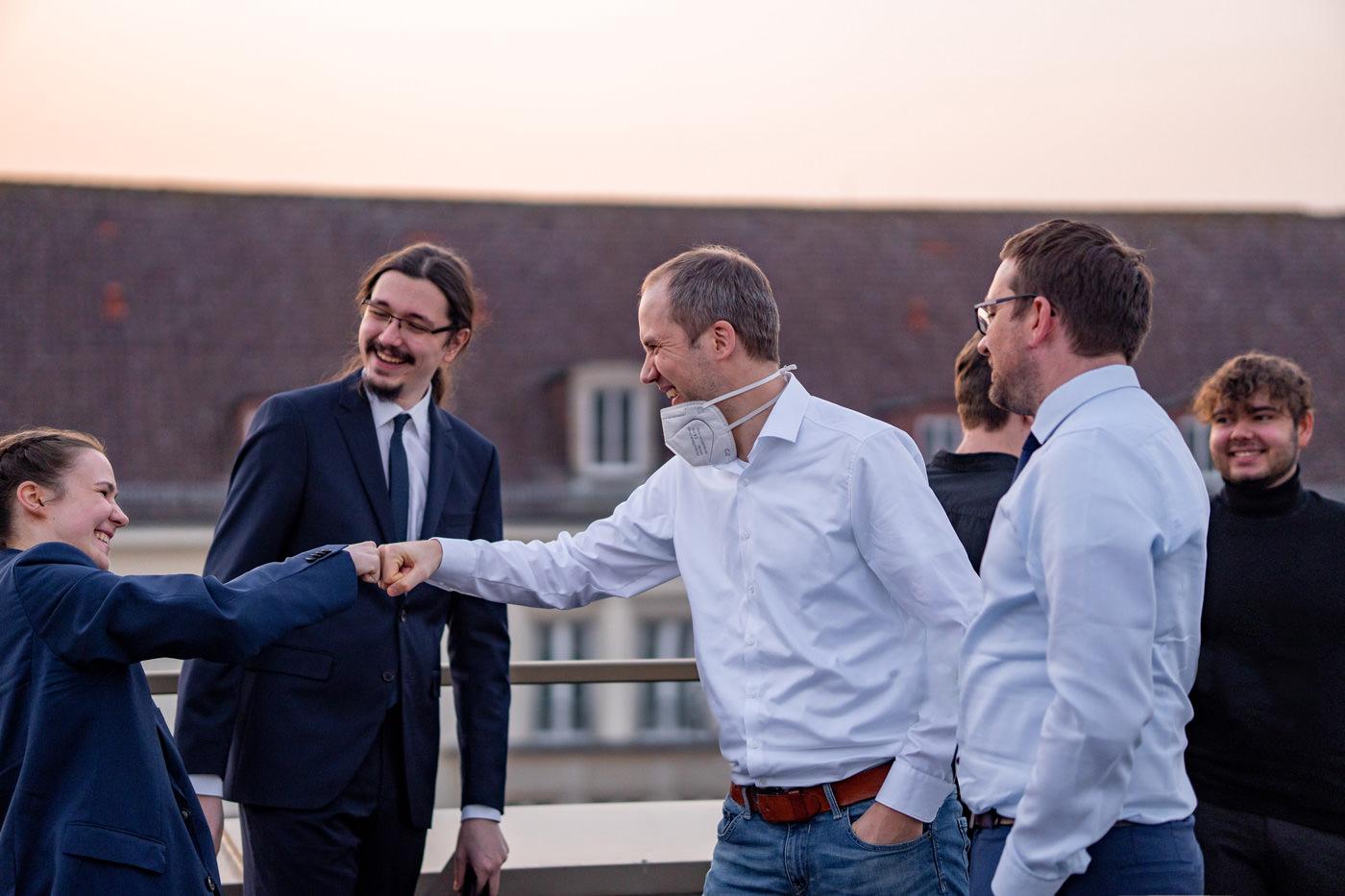Implementation of VR-based learning environments-Theoretical frame of reference and practical application.

This paper applies a frame of reference to systematize the advantages and disadvantages of such learning scenarios, especially on didactic, economic and technological levels.
Author:
Prof. Dr.-Ing. Marius Brade
Author:
Maximilian Georg Liebscher
Author:
Jonathan Dyrna
Author:
Helge Fischer
Paper
For decades, professional discourse on the use of VR-based learning environments in education has often emphasized their opportunities over their limitations in a rather unsystematic way. The present article applies a framework to systematize examples of the advantages and disadvantages of such learning scenarios, with particular focus on the didactic, economic and technological dimensions. It further describes a practical use case that attempts to exploit the potentials of using VR-based learning environments for educational purposes while adequately addressing its challenges.
Link to: PDF (German)
Link to: PDF (German)
Your contact for questions

Prof. Dr.-Ing. Marius Brade
m.brade@fh-dresden.eu
Author: Prof. Dr.-Ing. Marius Brade, Maximilian Georg Liebscher, Jonathan Dyrna, Helge Fischer
Last modified: 12.05.2022 08:12 Uhr
Created at: 06.05.2022 10:56 Uhr
Newsletter
You would like to contact us? We are here for you!
Do you have questions, criticism or suggestions? Then write to us via the contact form. You can also reach us by e-mail and telephone.
We are looking forward to your message!
Do you have questions, criticism or suggestions? Then write to us via the contact form. You can also reach us by e-mail and telephone.
We are looking forward to your message!
New Work Design Lab
at the Fachhochschule Dresden (FHD)
Campus Straßburger Platz
Güntzstr. 1, 01069 Dresden
www.fh-dresden.eu
at the Fachhochschule Dresden (FHD)
Campus Straßburger Platz
Güntzstr. 1, 01069 Dresden
www.fh-dresden.eu
Contact
Tel.: +49 351 4445 409
Fax: +49 351 4445 410
Contact Person
Prof. Dr. Marius Brade
E-Mail: m.brade@fh-dresden.eu
Tel.: +49 351 4445 409
Fax: +49 351 4445 410
Contact Person
Prof. Dr. Marius Brade
E-Mail: m.brade@fh-dresden.eu

